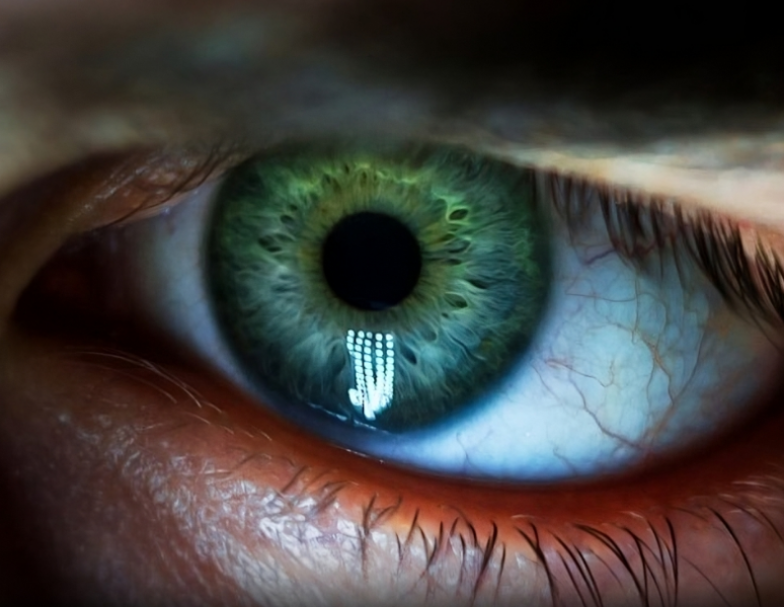Staying up late into the night often brings with it a sense of unease. You’ve probably found yourself lying awake past midnight, battling restless thoughts, craving junk food, or feeling unusually emotional. It turns out, according to scientists, this is not just a coincidence. The human brain operates very differently in the hours after midnight, and these changes can significantly impact both your emotions and behavior.

Researchers have even coined a hypothesis called ‘Mind After Midnight’ to explain the distinct way our brain processes information after dark. So, why is the human mind not built to be awake during these late hours, and what are the implications?
Let’s dive into the science behind the nocturnal mind and the reasons why staying awake past midnight can lead to risky behaviors, negative emotions, and potential dangers.
1. The Circadian Rhythm: Our Internal Clock
The first thing to understand is our circadian rhythm. This is our internal body clock that regulates sleep and wake cycles over a 24-hour period. During the day, your brain is wired to stay alert, focused, and productive. When night falls, your circadian rhythm shifts, encouraging sleep and rest.
From an evolutionary standpoint, this makes sense. Early humans were most effective during the daylight hours for activities like hunting and gathering. Nighttime, on the other hand, posed numerous risks—so our ancestors evolved to sleep through these hours to avoid becoming prey.
Now, while we no longer face the same survival threats, the way our brains react to being awake at night hasn’t evolved much. When you’re awake after midnight, your brain is functioning in a way that isn’t optimal. This affects your emotions, attention, and even how you process rewards and risks.
2. Negative Thoughts Amplified at Night
Ever notice how your mind seems to spiral into negative thoughts late at night? Scientists have found that the brain’s reward/motivation system shifts after dark, leading you to focus more on negative emotions.
This heightened focus on negativity was once useful when humans needed to stay alert to potential dangers in the dark. But in today’s world, this can lead to anxiety, sadness, and even feelings of hopelessness. For people who are already struggling with mental health issues, these nighttime thoughts can become overwhelming.
For instance, studies have shown that rates of suicide and self-harm peak between midnight and 6 a.m. The risk of suicide is reportedly three times higher during these hours compared to any other time of day. This underscores the importance of sleep and the dangers of prolonged wakefulness during the late night.
3. Craving Risky Behaviors
Another significant change that happens to the brain after midnight is that inhibitions weaken, making risky behaviors more appealing. You may find yourself craving that midnight snack, indulging in a cigarette, or even engaging in more dangerous activities.
For those struggling with addiction, this time can be particularly dangerous. One study mentioned in the ‘Mind After Midnight’ hypothesis highlights the story of a heroin user who controls their cravings during the day but gives in during the night. The cover of darkness, combined with a weakened sense of control, makes late-night risky behaviors much more common.

4. The Link Between Sleep Deprivation and Nighttime Behavior
Of course, lack of sleep plays a huge role in all of this. Sleep deprivation significantly alters how the brain processes rewards and risks. When you’re sleep-deprived, your brain is less capable of making rational decisions and assessing the consequences of your actions.
For people who regularly work the night shift, like doctors, pilots, or security personnel, sleep deprivation paired with being awake during the hours when the brain isn’t wired to function optimally can create a perfect storm for poor decision-making.
5. Heightened Risk of Substance Use at Night
Substance use, particularly drugs like opioids, tends to increase significantly at night. A study from 2020 at a supervised drug consumption center in Brazil found that the risk of opioid overdose was 4.7 times higher at night compared to the day.
The combination of circadian misalignment and the cover of night leads to a greater chance of engaging in dangerous behaviors. Whether it’s the craving for drugs or the pursuit of a thrill, the mind after midnight isn’t capable of thinking things through clearly, making it more likely for individuals to engage in harmful activities.
6. Protecting the Mind After Midnight
So, how do we protect ourselves from the risks associated with being awake past midnight? First and foremost, recognizing that our brain functions differently during these hours is essential. While some professions require late-night shifts, it’s crucial to create routines that protect sleep and mental well-being.

More research is needed to understand how the brain operates under sleep deprivation and what can be done to mitigate the risks of nighttime wakefulness. However, understanding your body’s natural rhythm and making sleep a priority can significantly reduce the negative effects of being awake when your brain isn’t built for it.
Conclusion
The research is clear: our brains are not wired to function optimally after midnight. The ‘Mind After Midnight’ hypothesis highlights the ways our emotions, risk assessment, and decision-making abilities are altered during late-night hours. From heightened negativity and risky behavior to increased substance use and vulnerability to mental health crises, staying awake past midnight comes with significant consequences.
Understanding the changes our brains undergo during these hours is crucial in protecting both mental and physical well-being. Whether it’s through prioritizing sleep, creating healthier nighttime routines, or seeking help when struggling with insomnia or mental health issues, it’s important to take steps to ensure our minds get the rest they need.


